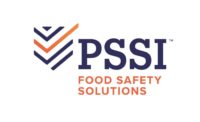The spread of the COVID-19 virus impacted nearly every aspect of American life and business. Minnesota’s food and agricultural supply chain was not spared the effects of the pandemic.
Due to the essential nature of food and agriculture, a coalition of Minnesota food and agricultural groups partnered to survey processors and manufacturers to better understand the supply chain effects of COVID, the resulting pain points and what new services, resources, and collective solutions may resolve them.
The study was conducted through a partnership of the Agricultural Utilization Research Institute (AURI), AgriGrowth, the University of Minnesota’s College of Food, Agriculture and Natural Resource Sciences, GreenSeam and the Minnesota Department of Agriculture. The report provides vital information and industry insight, along with supportive actions to improve supply chain resiliency for Minnesota businesses. “Navigating Supply Chain Challenges: Minnesota’s Food and Agriculture Manufacturers and Processors” is a collaborative analysis to identify the impact of COVID-19 on the state’s food and ag processing and manufacturing sector.
“We know that the challenges of COVID-19 have put tremendous strain on Minnesota farmers, processors, and the entire agriculture industry,” Minnesota Commissioner of Agriculture Thom Petersen said. “But it’s important to keep hearing from people about what they’re experiencing so we can make good policy decisions to help them. These survey results give us one more tool we can use to help guide our work.”
From June 29 to August 9, 2020, more than one hundred Minnesota food and agricultural manufacturers and processors voluntarily responded to the survey. The majority of respondents reported less than a $1 million in annual revenue, though large businesses (more than $1 billion in annual revenue) also participated. Respondents’ years in business ranged from less than 10 years to more than 100 years.
The overarching takeaway from the report is that businesses faced unprecedented challenges. Sales and marketing was most impacted followed by labor and procurement of inputs. Companies had to make difficult decisions and navigate destabilized supply chains to ensure financial viability.
Major reported barriers included varying state response criteria, shutdowns, a fearful public and unemployment benefits. Major disruptions included market and sales losses, labor shortages, bottlenecks, safety lags in PPE and testing, inconsistent inputs and difficult decision making around operations.
Additionally, respondents reported key resiliency needs as broadband access, consistent inputs, more meat processing plants, new market channels, healthy employees/adequate labor, increased collaboration and supply chain connections, easier access to capital, management training to make agile decisions, finding ways to open businesses quickly, and ensuring public safety.
“The research and insights produced through this survey and analysis are vital to helping industry partners understand the short and long-term impacts of COVID-19 on our value-added supply chains to help the sector prepare for future disruptions,” said Shannon Schlecht, AURI’s executive director.
“The health and stability of our agricultural economy requires the collaboration of many stakeholders,” said the Director at GreenSeam, Sam Ziegler. “It is vital that we analyze and learn from the experiences of Minnesota’s food and agriculture manufacturers and processors during the pandemic in order to provide meaningful assistance and ensure a resilient food and agriculture supply chain in Minnesota.”
The full report is available for download at: https://www.auri.org/research-reports/covid_report/
To learn more about this report, be sure to attend the upcoming Webinar Wednesday virtual event on December 9 at 12pm. To register for the event, click here.
Source: AURI




Report Abusive Comment